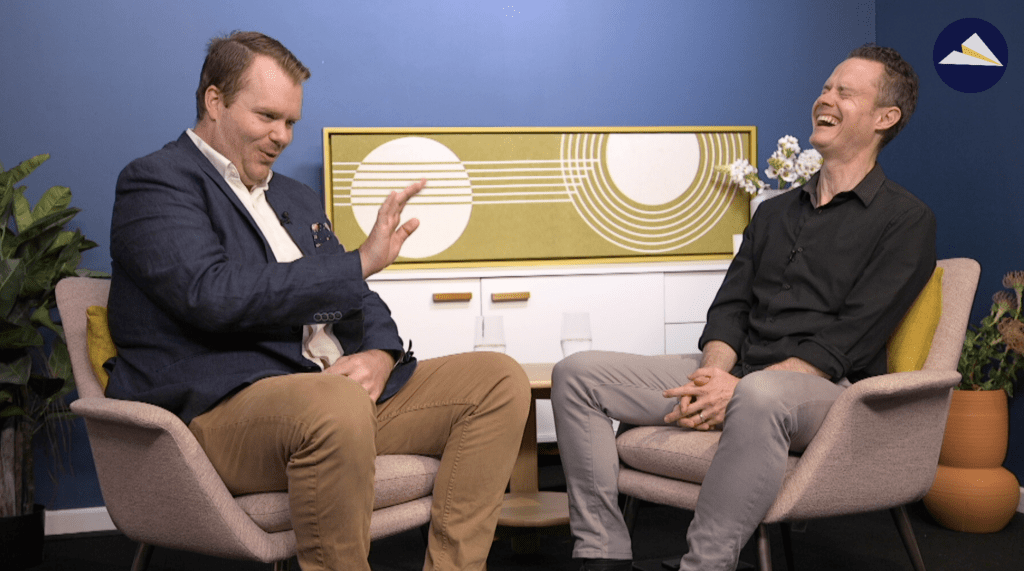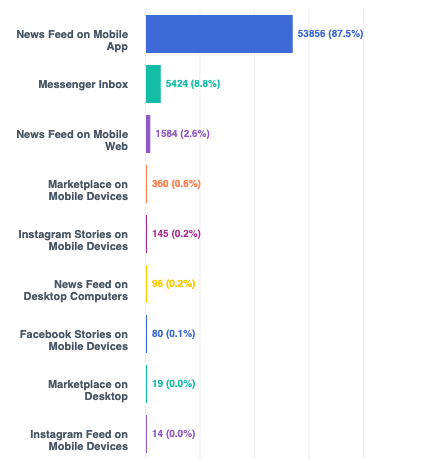“What can I do today to find more leads?”Or:
“Who was it that I needed to follow up with again?”Lead generation is hard work when you do it this way (i.e. without a steady source of leads or a system to manage it all). It’s costly, too. Imagine how much more money you’d make if your inbound marketing strategy consistently pushed new leads into your funnel every day while you worked on tasks that help you grow your business and revenue.
 Guess what? There’s already a tool that can make that possibility a reality: Facebook Ads. More specifically, well-crafted Facebook ad campaigns can help you make three to five times more in your consulting business.
In this introductory guide to Facebook advertising, I'm going to show you how to get started with Facebook ads and ensure you have the right audience targeted with the right message. Not only that, but I will share with you some important changes in Facebook advertising for 2020.
Guess what? There’s already a tool that can make that possibility a reality: Facebook Ads. More specifically, well-crafted Facebook ad campaigns can help you make three to five times more in your consulting business.
In this introductory guide to Facebook advertising, I'm going to show you how to get started with Facebook ads and ensure you have the right audience targeted with the right message. Not only that, but I will share with you some important changes in Facebook advertising for 2020. An Introduction to Facebook Advertising
Let’s start with the basics: What exactly can you do with Facebook advertising?
At first glance, you might not think there’s much you can do besides run an image or text ad.
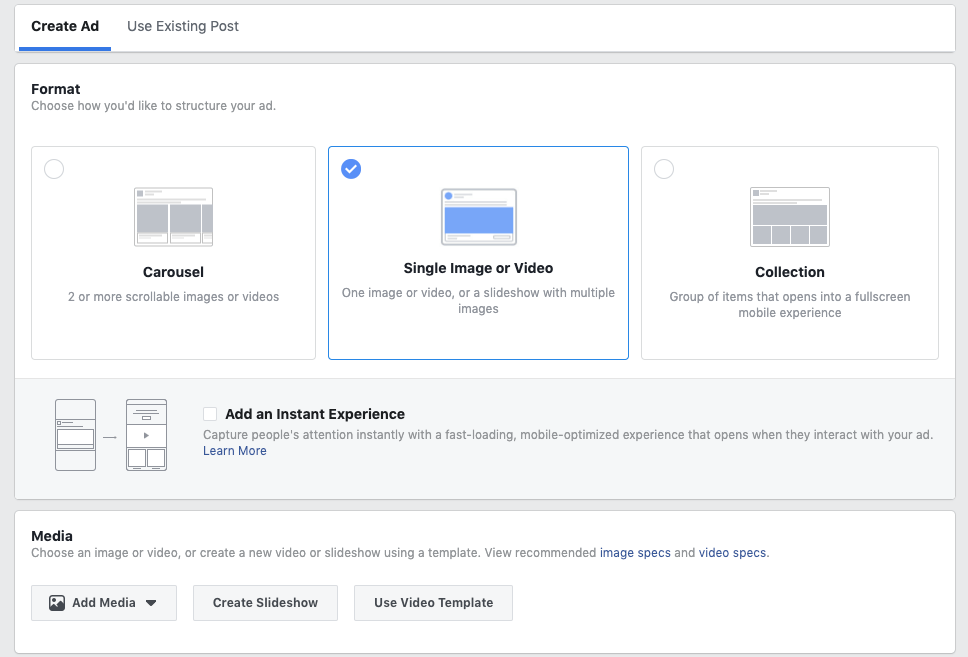
But there’s a lot more to it if you want your ads to actually convert.
Let’s dive in.
Ad Placements
Did you know you can run Facebook ads outside the Facebook news feed?
By default, when you create a new ad on Facebook, it’s going to suggest that you turn “Automatic Placements” on. What this feature does is automatically choose which devices and platforms your ads are shown on.
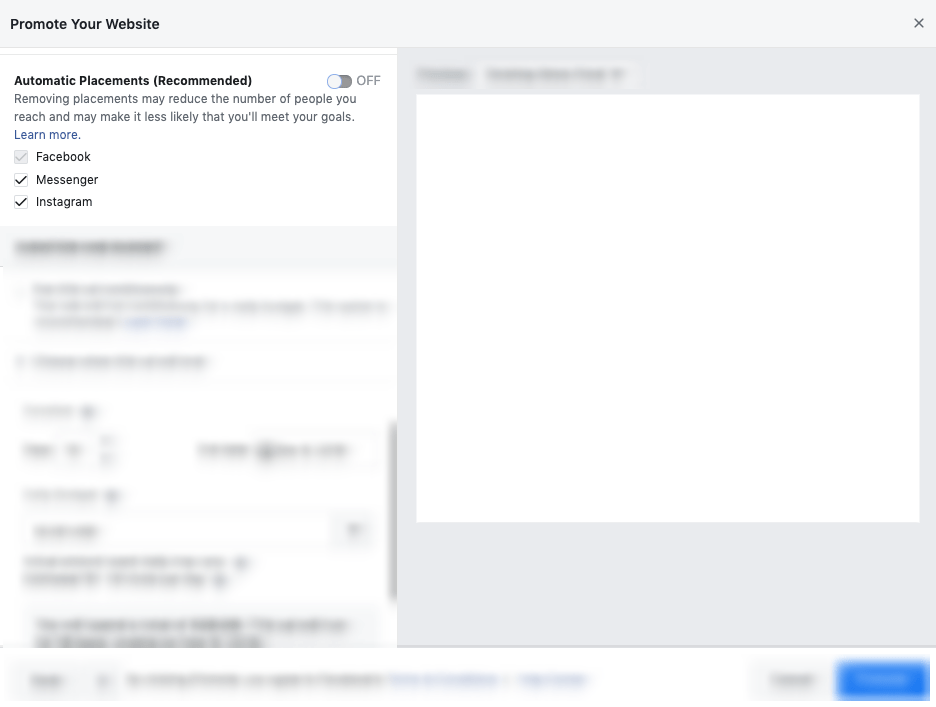
But this is an oversimplification of where you can actually reach prospective clients with ads. When you preview an ad, here’s what you’ll see:
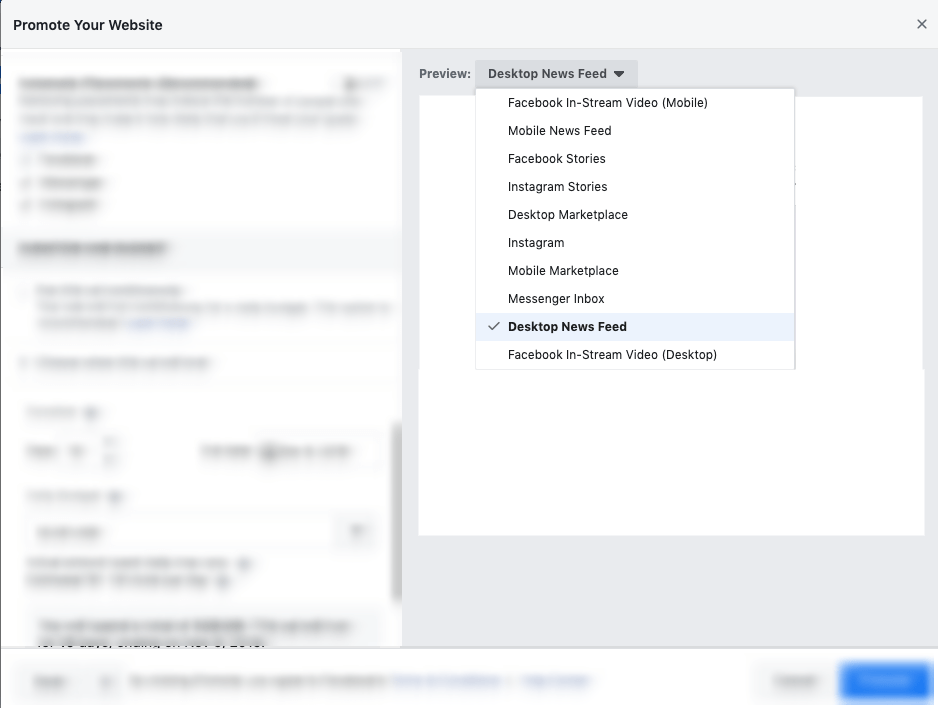
Your Facebook ads have the ability to target leads on Facebook:
- Desktop news feed
- Mobile news feed
- Desktop in-stream video
- Mobile in-stream video
- Desktop marketplace
- Mobile marketplace
- Stories
On Instagram:
- News feed
- Stories
And in the Messenger inbox (more on that below).
Although Facebook ultimately determines where the ads run (based on the parameters you set), there’s a lot you can learn after running just one ad.
For instance, you can see here that mobile absolutely dominated. But what if your mobile website runs slowly or doesn’t serve the right message (i.e. intent) to those visitors? If you saw a lot of click-throughs on your ad, but Google Analytics and your conversion gateway are telling you that nothing came of all that traffic, this data can help you make critical updates before attempting another ad.
This data also helps you shape future ad campaigns. For example, if your ad was served to tens of thousands of people, but only a couple dozen clicked the call-to-action, there’s something wrong there. Was the audience just a bad fit for this offer? Or was the offer not communicated in a compelling enough way? I’ll talk more about how you can sort these points out (and test alternatives) down below.
Messenger Ads
Facebook Messenger presents an interesting opportunity. As you can see in the ad placements above, Messenger Inbox is one place where your ads may appear. But that’s just when you run a traditional ad from the ad centre.
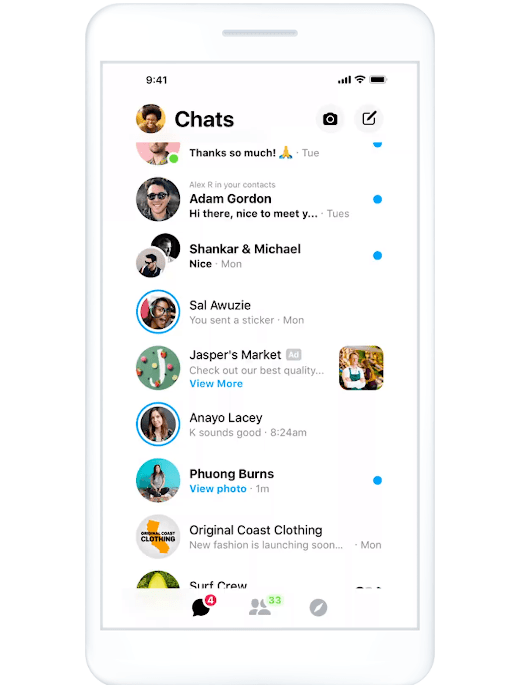
You can do other things with Messenger advertising. For instance, when running Instagram Stories ads, you can opt to run one at the top of the Messenger app, too.
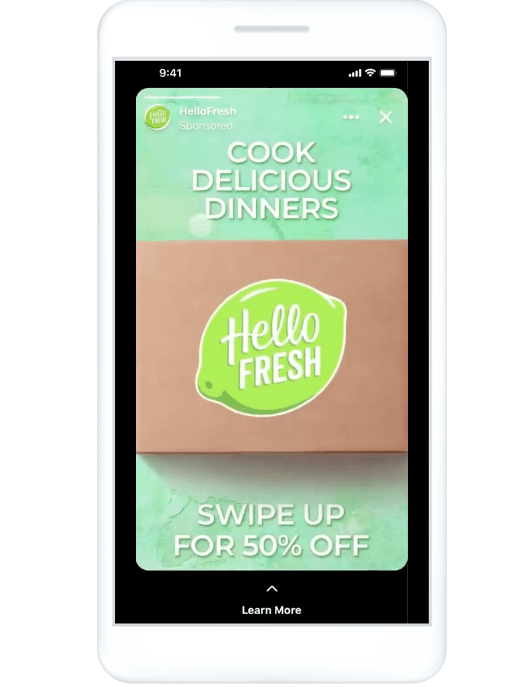
Another option is to publish a regular ad. However, rather than set your objective as website visits or video views, push your visitors to Messenger.
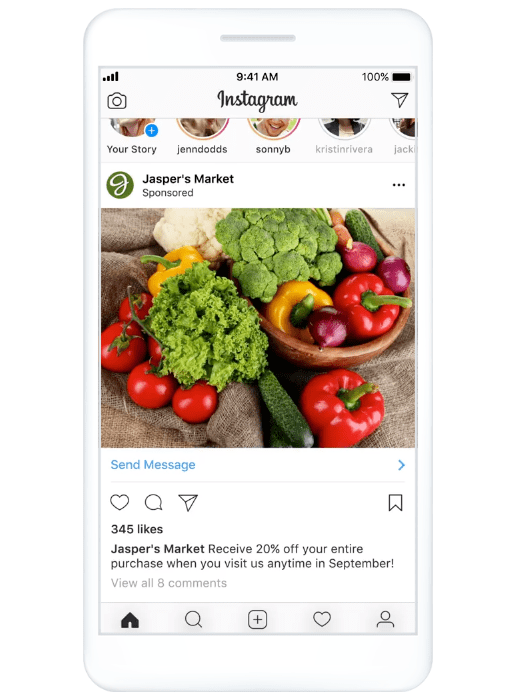
That way, the call-to-action on all your ads will become “Send Message” and will enable you to connect one-on-one with leads right away and in real time.
Another option with Messenger marketing is to send a sponsored message to Facebook users who’ve already engaged with your business through Messenger.
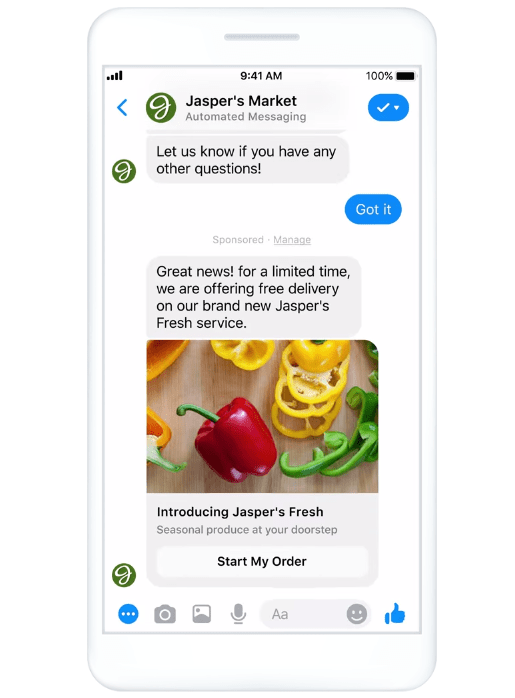
By retargeting users that have shown enough interest to engage once, you’ll increase the chances that this next communication is the one to convince them to convert.
Campaign Budget Optimisation (CBO)
This is less about setting a budget for a single post that you want to promote and more about how to efficiently use paid marketing spend across an entire campaign.
This is the Facebook Ads Manager
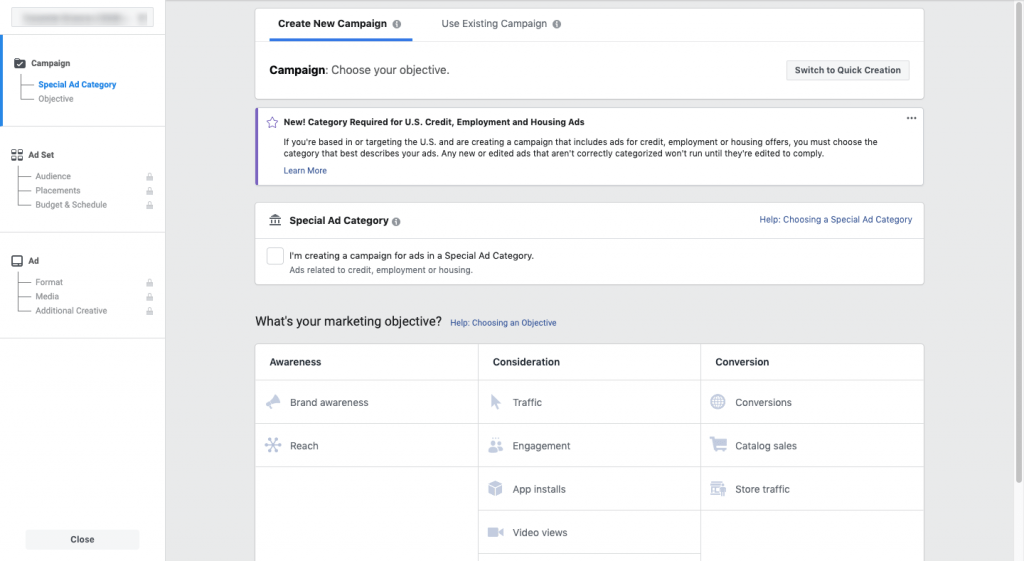
This is much different from the single ad promotions you do inside the Facebook app. It gives you more control over your Facebook advertising efforts, including optimising campaign budgets:
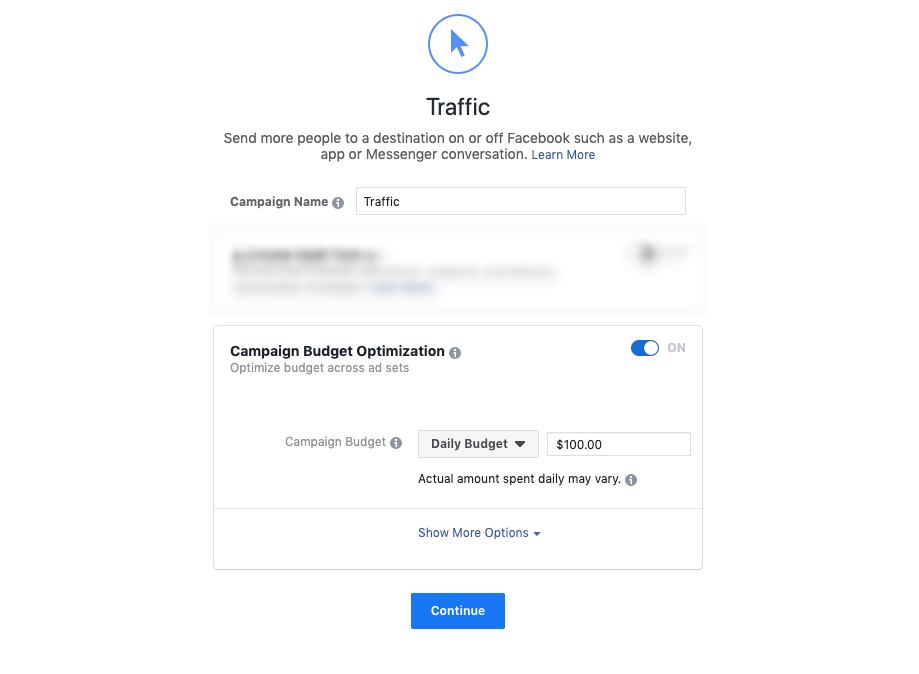
While Facebook can’t configure the perfect ad campaign for you, what it does do well is optimise the ad run and spend based on the budget you’ve set.
Essentially, it takes your bid strategy (say, if you’re trying to get the highest return on what you spend) and runs your ads in placements that are going to get the best results, even if that means 80% of the budget is spent on one ad out of the five running. It’s a more data-driven approach to locating opportunities on Facebook.
Now that you have an idea of how valuable Facebook advertising can be for your consulting business, let’s talk about what else you can do to make the most of it.
Making the Most of Facebook Ads
Widen Your Wallet with a Narrow Audience
Take a look at your Facebook news feed and compare it to that of your coworker, friend or partner sitting across from you. The two feeds are completely different, right? That’s because Facebook’s news feed algorithm custom-serves content to its users based on what it knows about them. You should be doing the same thing when advertising on Facebook. When configuring a Facebook ad or campaign, you’re going to be asked to define your audience. Under no circumstances are you to go broad with this. Targeting more people does not equal more money. Just as you’ve identified a niche for your business, you have to do the same with your Facebook ads.
Just as you’ve identified a niche for your business, you have to do the same with your Facebook ads. 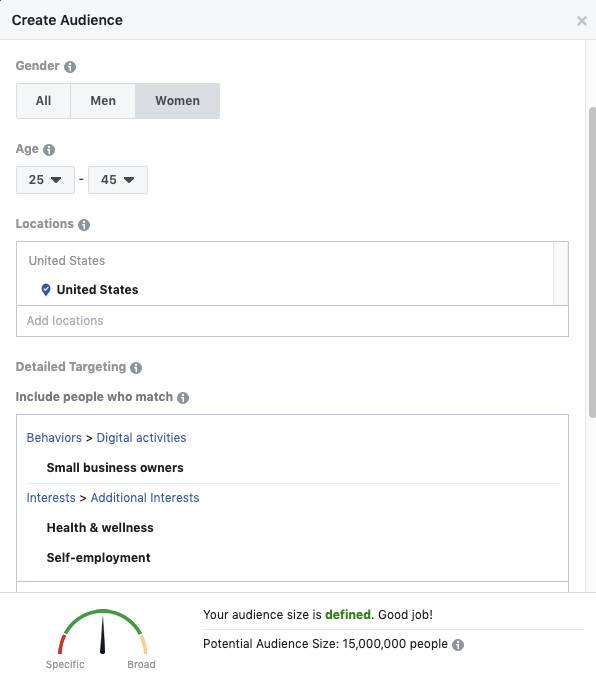
This is an example of an audience set I could use if I were to target female health and wellness coaches. Note how Facebook tells me that the audience is “defined”. That’s because I sufficiently made use of all the parameters, including:
Gender
Age
Location
Interests
Behaviours
Job Titles
Here’s another way I might successfully target the same audience. This time, however, I’m only targeting users located in Chicago:
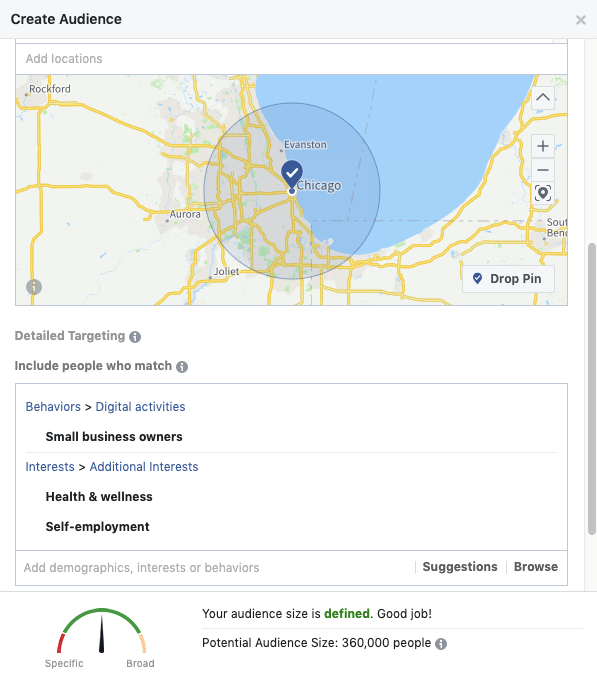
You can see that the potential audience reach is significantly less, but that doesn’t matter to Facebook as it’s still a viable audience.
Ultimately, it’s up to you to narrow down whom you want to reach on an advertising level. In other words:
Who are your decision-makers? And who is it that you really want to work with?
Take some time to think this through before setting up your first campaign. You don’t want to go spending precious ad dollars just to get in front of more people. Vanity metrics don’t matter here. Focus on the quality of your targeted audience.
Craft a Compelling Offer That Will Convert
You don’t just get control over who sees your ads. You get to control what content they’re served.
First, you need to decide what your marketing objective is:
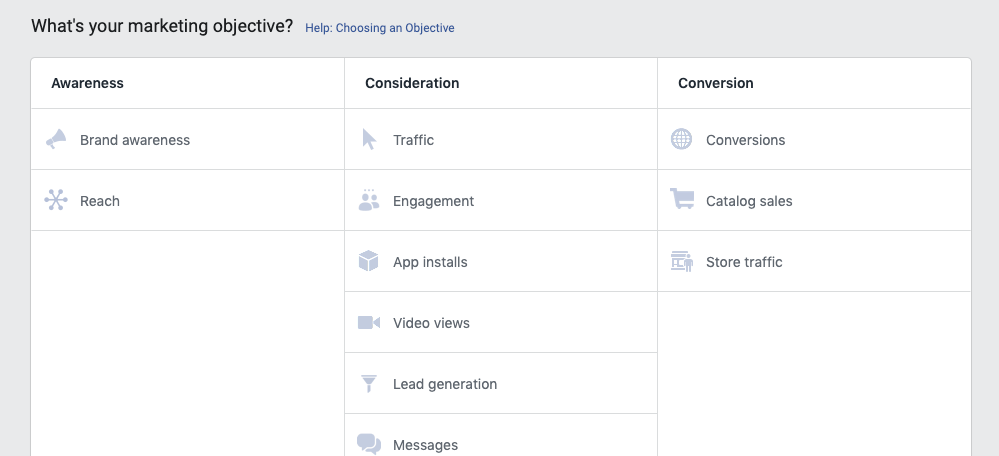
If you don’t know where you want to drive Facebook users or why, don’t bother spending money on an ad. Envision the path you want them to take. Then building it out with the ad will be easy.
Just don’t forget about the copy, images or CTA. You need to craft an offer that you know will work. That means giving your leads details about how the offer works and justify in just a few seconds that the click will be worth it.
Here’s an example scenario for you:
- A fitness coach is on an extended lunch break and frustrated she doesn’t have more customers booked.
- She opens Facebook and sees your video ad.
- The ad speaks about the pain of feast or famine and how your agency has helped health and wellness entrepreneurs get, on average, 15 new clients from their websites every month.
- She’s invited to “Take the Next Step”.
- She clicks the button because that’s exactly what she needs to do: take action. At which point she’s taken to a special landing page on your website with a form to book a discovery call.
Your goal here is conversion. Book a call. Buy my product. Read this blog post. So, your offer needs to be so valuable that people who see it can’t click the button fast enough.
Remember to Split Test
One last thing to do to optimise your ad creation efforts is split testing, which is no different from split testing on a website or in a newsletter.
It starts with a hypothesis:
“I think that changing this one element will result in more conversions.”
When it comes to split testing Facebook ads, you have a few options:
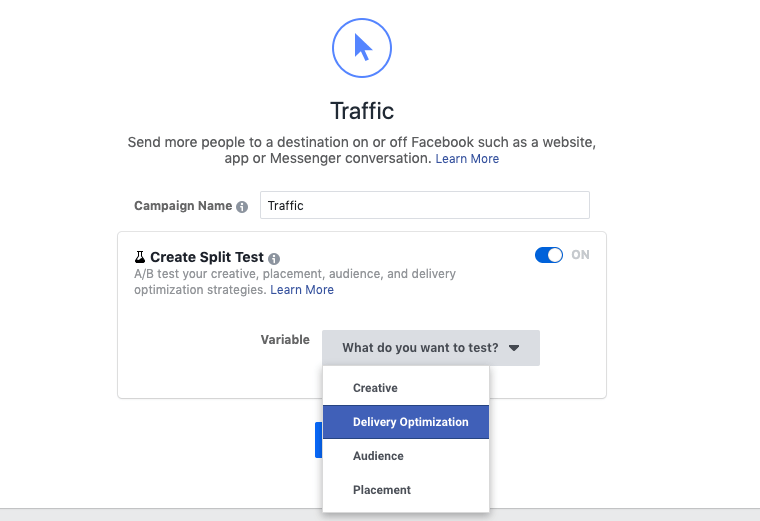
Keep in mind, however, that split testing is really only valuable once you have the numbers to validate your test results. In other words, if your ads aren’t configured properly and you’re only getting about 20 views a day, don’t bother split testing. You won’t be able to tell much when comparing how 10 people reacted to the copy of one ad and 10 to another.
Once you’ve found your ad optimisation sweet spot, though, go ahead and set up your A/B test.
The first thing to play around with is your audience. Even if you’ve gotten the green light from Facebook for having a defined audience, are they really the best people to serve your ads to? For instance, you can test this out by running the same ad against a lookalike audience (one that resembles leads and clients you have in your database).
The next thing to test would be your creative — the message, image and CTA. Can you take your click-through rate from 50% to 70%? You can give that theory a test run by rewording your offer. Rather than encourage new customers to “Sign Up for a Free Trial”, tell them “The Next 14 Days Are on Us. Are You In?”.
What’s Coming to Facebook Advertising in 2020?
There’s always something new coming down the line in social media marketing. Here are some things you need to prepare for in 2020 and beyond:
1. The News Feed Shift
Facebook has plans to add more advertising sections to its news feed. Specifically, there are going to be two or three new sections. That means more real estate for your ads to appear in, so now’s the time to work out the kinks in your process!
2. Messenger Ads
As privacy becomes an ever-growing concern online and users’ patience for any sort of inconvenience or offence grows thinner, we’re going to see Facebook adapt. In 2020, that means they’ll be changing up how Messenger is used to try to combat the intrusion of bots.
3. Increased Competition
Think you’re the only one reading up on how to make money with Facebook ads? Nope. It’s estimated that $2 billion in ad revenue will come in from the Australian market and $20 billion from America. If you don’t fix your advertising strategy now, expect to pay much higher ad bids.
The One Secret Most Facebook Advertisers Don’t Want You to Know
 Stop chasing the popular fads, the get-clicks-quickly schemes and other shortcut-like tactics. The only way to get more leads and sales from Facebook ads is to create and follow a consistent and well-thought-out system.
Running a Facebook ad campaign that’s going to get you real results — we’re talking leads pouring in daily and a major bump in revenue — requires more finesse than any simplified or hacked approach might promise.
Stop chasing the popular fads, the get-clicks-quickly schemes and other shortcut-like tactics. The only way to get more leads and sales from Facebook ads is to create and follow a consistent and well-thought-out system.
Running a Facebook ad campaign that’s going to get you real results — we’re talking leads pouring in daily and a major bump in revenue — requires more finesse than any simplified or hacked approach might promise. Wrap-Up
